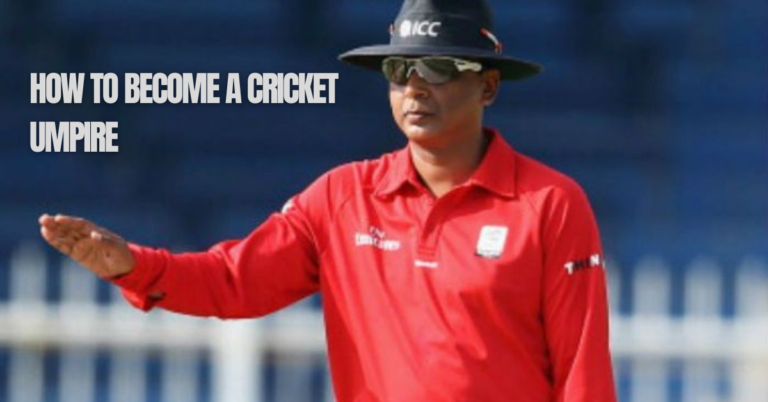Becoming a cricket umpire requires dedication, knowledge, and adherence to specific procedures. Here’s a step-by-step guide on how to become a cricket umpire:
- Understand the Game: Develop a deep understanding of cricket’s rules, regulations, and nuances. Watch matches regularly, study the laws of cricket, and familiarize yourself with various game formats (Test, One Day Internationals, T20s).
- Join a Umpiring Association: Contact your local cricket board or association to inquire about umpiring courses and programs. Many cricket boards offer formal training and certification for aspiring umpires. Joining an umpiring association will give you access to resources, training materials, and mentorship opportunities.
- Attend Umpiring Courses: Enroll in umpiring courses from your local cricket board or association. These courses typically cover topics such as the laws of cricket, match management, decision-making, signalling, and match reporting. Completing umpiring courses will enhance your knowledge and skills as an umpire.
- Gain Practical Experience: Gain practical experience by officiating matches at various levels, including local club games, school matches, and lower-level tournaments. Volunteer to umpire matches whenever possible to gain exposure and confidence in your decision-making abilities.
- Obtain Umpiring Accreditation: Complete the requirements to obtain umpiring accreditation from your cricket board or association. This may involve passing written exams and practical assessments and fulfilling minimum match officiating requirements. Umpiring certification demonstrates your proficiency and competence as an umpire.
- Continuing Education and Development: Stay updated with changes to the laws of cricket and advancements in umpiring techniques through ongoing education and development. Attend workshops, seminars, and training sessions conducted by experienced umpires and cricketing authorities to refine your skills and knowledge.
- Network and Seek Feedback: Build relationships with fellow umpires, coaches, and officials within the cricketing community. Seek feedback and guidance from experienced umpires to improve your officiating skills and address any areas of improvement.
- Officiate Higher-Level Matches: As you gain experience and confidence as an umpire, strive to officiate matches at higher levels of competition, such as regional tournaments, domestic leagues, and representative matches. Officiating higher-level matches will challenge you and provide opportunities for growth and advancement in your umpiring career.
- Stay Professional and Ethical: Maintain professionalism, integrity, and impartiality as an umpire. Uphold the spirit of the game, treat players and officials with respect, and make decisions fairly and consistently.
- Consider Umpiring Certification Programs: Some international cricket bodies offer certification programs for umpires aspiring to officiate at the game’s highest levels, such as international matches and tournaments. Explore the requirements and pathways for obtaining certification from relevant cricketing authorities.
By following these steps and committing yourself to continuous learning and development, you can pursue a rewarding career as a cricket umpire and contribute to the integrity and spirit of the game.

